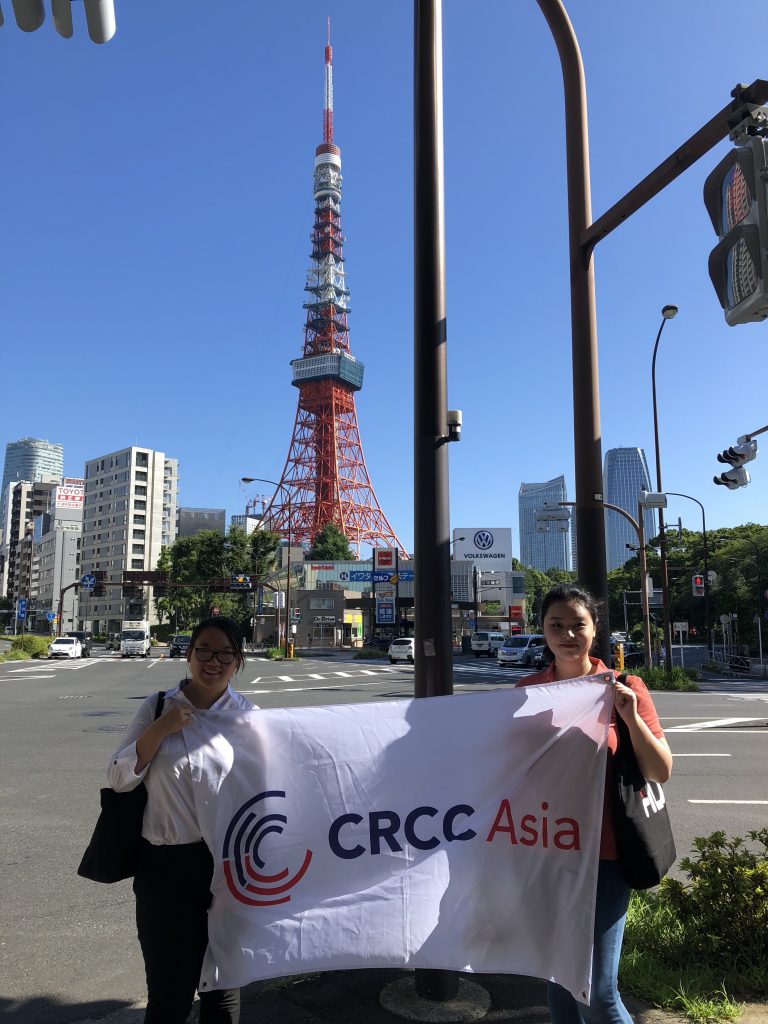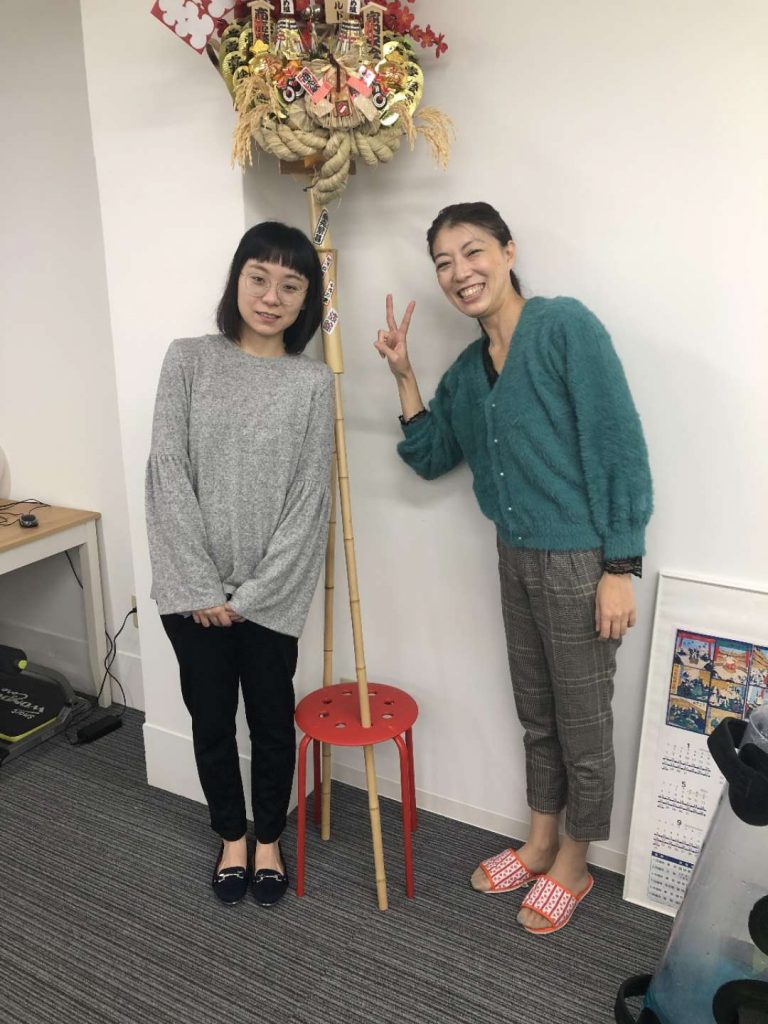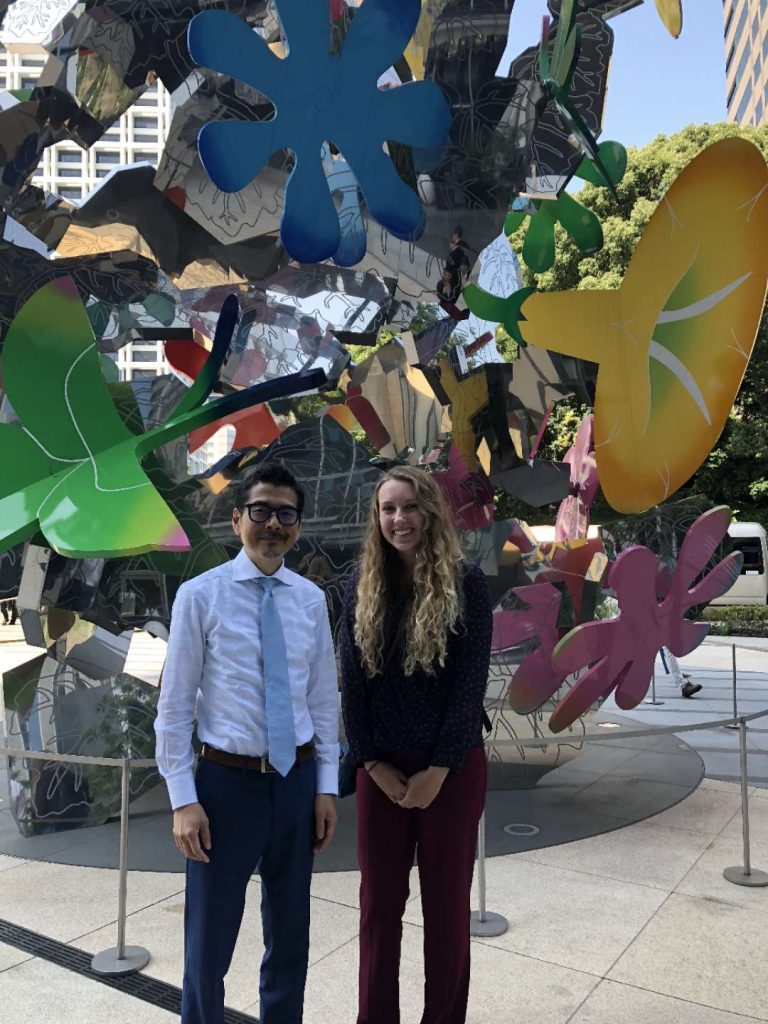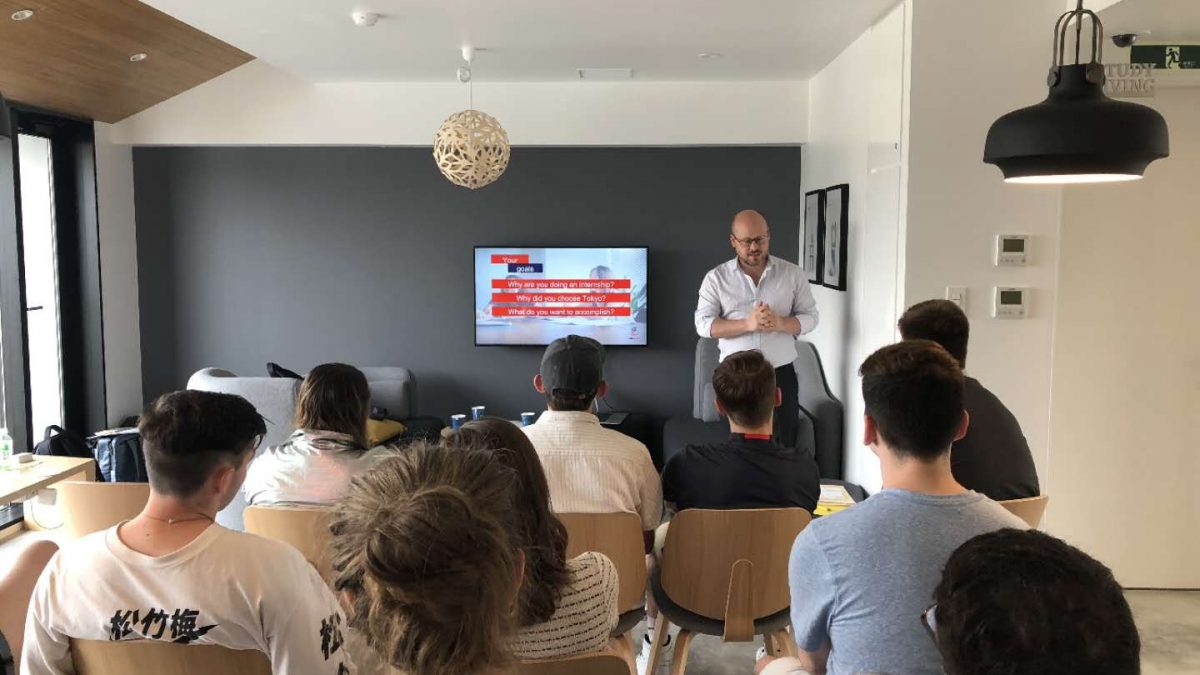How to get a job in Japan
Like us, you might be a huge fan of Japan, but have you ever thought of working abroad in Tokyo or Kansai Region? Making a big move for your career doesn’t have to just be a dream – make it happen! Follow our best tips on how to get a job in Japan…
Written by Tyler DeVice, Jonathan Garnier, and Kevin Kikuchi
Top 5 channels for how to get a job in Japan
Internship in Japan
Most Japanese companies require some length of work in Japan, especially to better understand the market, experience the professional culture, and gain industry insight. What better way to make them realize they need you than completing an internship? Internships are also a great introduction to your field, so you can explore different opportunities and also see if this is the field you would like to pursue for a career in Japan.

Two of our CRCC Asia interns start their first day interning in Tokyo
Networking
It is always beneficial to seek chances to expand your professional network. Whether it is a job or career fair, company event, or anything else, try your best to get your name out there! Have professional business cards ready in case you meet someone by chance, this way they will have your contact information! In order to get a job in Japan, it is not as much ‘what you know’, but rather ‘who you know’!
Recruiters
Recruiters are a great resource for those who may not have much time to search by themselves, or those who have a junior profile. Check which recruiter is suited to you depending on what position he/she covers. Good recruiters will know the hiring managers and what interview questions to expect when you look for a job in Japan. Talk to these recruiters so you can gain insight into the current markets trends and information on industries you are looking to pursue.
Online job platforms
There are many professional platforms such as LinkedIn, Daijob, and Gaijinpot which often have thousands of offers updated daily. Make sure you have profiles on several different sites, and keep your profile professional and as up-to-date as possible with your education, work experience, volunteering, and any awards or publications you may have. Recruiters often only take 10-15 seconds to determine candidates, so make your profile stand out!

Kansai region could be your next home if you decide to work abroad!
Timing of application
As with any other market, the Japanese job hunting market also has its fair share of ebbs and flows. There is usually a huge surge of people trying to find jobs in Japan around December or after April. These are usually after the employees at a company have received their bonuses and are ready to move on. Try applying during off periods such as June – July. However, note there are usually less jobs available during these times too, so be proactive and get applying!
Top 5 attitude tips
Always accept an interview
Remember, not everyone gets offered a chance to interview! Even if you’re unsure if the job you’re applying for will be a good fit, you should always accept an interview if one is offered to you. It is very rude to deny an interview, and getting any type of professional interview experience is very important and always beneficial. If a company offers you an interview this means they already see potential in you, so believe in yourself and be yourself. No one will ever offer you an interview if they are not already even just a little bit interested in your profile & skills! Your skills & potential will, of course, be checked during the interview, but the real point is to see if the company will enjoy working with you.
Looking for a job in Japan is a mighty task in itself so do not go in there halfheartedly! Also, you may end up really enjoying your conversation with the supervisor, learning about the duties of the job, and experiencing the company atmosphere. This may even lead you to decide to accept the job offer if it is extended to you. Either way, it never hurts to interview!

It always helps to intern at a company to get a feel for the industry.
Don’t be afraid of a denial
No job hunt is easy, and chances are there are dozens or even hundreds of other applicants going for the exact same position as you. Many times, these other applicants will have more experience, more advanced education, and could simply be better qualified for the position than you are. What that means is that you will not always get a response, an interview, or an offer, and this is okay! Failure is a very important part of personal growth, and it is how you use this to motivate yourself that will better equip you for the next time. Remember – some days you win, some days you lose. It is all about balance!
Always consider feedback
It is incredibly important to understand your own strengths and areas in which you excel, but it is equally important to understand your areas for growth and things you should work to improve on. No job interview or application is perfect, and if a company is considerate enough to offer you feedback, you should always consider what they have to say. Did they feel you were well-prepared for the interview? Was your resume/CV well-organized and applicable to the job you were applying for? All of these are important things to consider and any feedback you can get can prove very useful in the future when trying to get a job in Japan, or elsewhere.
Also, consider advice prior to interviews. If you’re working with a recruiter or someone who has had prior experience on how to get a job in Japan, they will have advice tailored to the specific job or company to which you are applying. You can use this feedback to better align your CV and consider what to discuss for the specific position.
Put your best foot forward
This can cover many aspects of the application process and the interview – the bottom line is to always showcase your best attitude and demonstrate why you are most deserving of the job. You will want to convince the company why you will be a great addition to their team, and this is often showcased by how you present and carry yourself during an interview. Remember to consider how your attitude, demeanor, and passions correlate with the work you will be doing and what you can bring to the table. It is important to always act in the best and most professional manner possible – smile, be polite, dress your best, and ultimately always keep your “best foot forward”!

First impressions are important – make sure you’re ready to introduce yourself to your potential new employers
Stand out amongst the crowd
Japan is evolving, but the current culture is still about not sticking out. Use this to your advantage. If everybody has the same thing to offer, this is your chance to bring to the table your USP (unique selling points) and convince the company that with you, they will make more money or impact than with any other employee. Understand the skills and experiences you have that make you unique, and be sure to highlight these as much as possible. Give your interviewer(s) something to remember about you and highlight what makes you the best, most unique candidate for the position.
With these points in mind, you should be all-set to start on your journey getting a job in Japan! If you’re interested in trying out working life in Japan, consider our Tokyo or Kansai Internship Programs. We offer a range of internship sectors including Technology and Finance, so get started on your journey and apply today. Wondering about our prices? Check out our article on explaining why you might pay for an Internship Program abroad.


